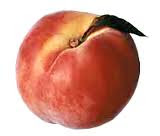She found him wanting something to believe.
He’d read of gods but had none of his own.
Without the training he could not perceive
his life as something by a potter thrown.
She filled this gaping spiritual void.
She backtracked through the existential maze
into an obligation he enjoyed
because it justified his selfish ways.
She started all this with the person qua
the person, which seemed circular to him.
That was, he knew, a necessary flaw.
All moral codes start out at least that slim.
Her standard value on which all was based
was human life itself, and he concurred.
He did not pause in his approving haste
to note the definition of each word.
Slim: As near as I can tell, the epigraph for this canto ("The standard of value…is man's life...") refers to the qualities that distinguish humans from other animals. I can’t get from that to an ethical imperative without passing through "It is that way, therefore it ought to be that way." As Ciral realized, however, it’s no worse than any other; most have their purported basis in mythology. Merrimac, as we see in the next stanza, also picks up on the word ‘life’. He apparently expects the reader, notably unlike the Objectivists, to understand that life is more than simply existing with a given nature and a continuing metabolism; it necessarily involves reproduction.
©2010 Louis A. Merrimac
Subscribe to:
Post Comments (Atom)

No comments:
Post a Comment